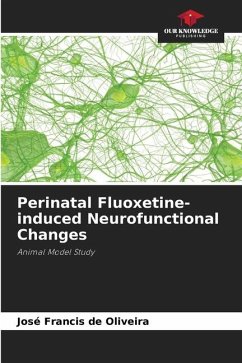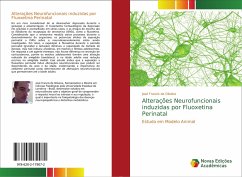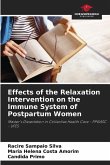There is a considerable risk of developing depression during pregnancy and breastfeeding. Pharmacological treatment of depression in pregnant women is advised in several cases, and the drugs of choice are serotonin reuptake inhibitors (SSRIs), such as fluoxetine. Considering that serotonin modulates various processes during the development of the organism, the potential effects of perinatal exposure to SSRIs on neurodevelopment are being investigated. In rats, exposure to fluoxetine during the perinatal period (pregnancy and lactation) decreased decision-making capacity, but did not induce anhedonia, in adolescent males and females. In response to a stressor, there was no difference in corticosterone secretion, but adolescent males had reduced activation of the basolateral amygdala, and in adulthood this reduction occurred in the medial amygdala. This study indicates that perinatal fluoxetine exposure induces neurofunctional alterations that may be dependent on gender and age, highlighting the importance of the perinatal environment as a determinant of neurofunctional alterations that continue into adulthood.
Bitte wählen Sie Ihr Anliegen aus.
Rechnungen
Retourenschein anfordern
Bestellstatus
Storno








